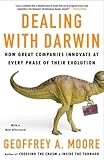Fractalization (and trivialization) of technological innovation
My friend Frank Piller this morning shared a witty story from last week’s New Yorker. The title and subtitle say it all:
“Let’s, Like, Demolish Laundry”The story about IT-enabled laundry delivery services focuses on Washio, a LA-based seed-funded startup. The three founders cruise along confident in the brilliance of their idea until they run across three Bay Area rivals (Laundry Locker, Prim, Rinse) — one incubated by Y Combinator — and eventually five more from NYC and two from Chicago.
Silicon Valley is in a bubbly race to wash your clothes better, faster, and cooler. This is not a metaphor. Unless, you know, it is.
Author Jessica Pressler makes only a feeble effort to restrain her sarcasm. In commenting why so many other tech entrepreneurs are addressing the same need:
In reality, when people in a privileged society look deep within themselves to find what is missing, a streamlined clothes-cleaning experience comes up a lot. More often than not, the people who come up with ways of lessening this burden on mankind are dudes, or duos of dudes, who have only recently experienced the crushing realization that their laundry is now their own responsibility, forever. Paradoxically, many of these dudes start companies that make laundry the central focus of their lives.But even in this segment, “new innovations are dying from the day they are born… There’s a term for this. It’s called the hedonic treadmill.”
Some of it has an anthropologist-visits-the-strange-tribe-of-Silicon-Valley feel. Even though their main office is in Santa Monica, Washio has the same (post-Amazon) disrupting of the physical world that brought us Pets.com and Uber. Their goal is to be “the Uber of laundry," and their share a common seed stage investor.
But early on, Pressler raises a more fundamental question:
We are living in a time of Great Change, and also a time of Not-So-Great Change. The tidal wave of innovation that has swept out from Silicon Valley, transforming the way we communicate, read, shop, and travel, has carried along with it an epic shit-ton of digital flotsam. Looking around at the newly minted billionaires behind the enjoyable but wholly unnecessary Facebook and WhatsApp, Uber and Nest, the brightest minds of a generation, the high test-scorers and mathematically inclined, have taken the knowledge acquired at our most august institutions and applied themselves to solving increasingly minor First World problems.Certainly Amazon and Google and Facebook (mostly) allow us to do things we did before, just more quickly and cheaply and conveniently. Yesterday, my sister-in-law could have mailed pictures of her daughter’s graduation to her friends and relatives, but instead she posted them on Facebook and they were instantly available.
Like Pressler, many of these activities seem trivial when I compare this to other “big” innovations, like trying to get mankind back into space or provide enough food and energy to bring 5 billion of the world’s 7 billion people up to developed world living standards. After changing jobs three years ago, life at my new employer reminds me that the life sciences have many important unsolved problems, whether it be preventing deaths from malaria and tuberculosis in sub-Saharan Africa or finding a cure for cancer.
 But on another level, Pressler’s article would come as no surprise to my innovation strategy students of the past eight years (whether at KGI, UCI or SJSU). The pattern is straight out of Dealing with Darwin, the grand unified theory of innovation by Geoff Moore (best known for Crossing the Chasm).
But on another level, Pressler’s article would come as no surprise to my innovation strategy students of the past eight years (whether at KGI, UCI or SJSU). The pattern is straight out of Dealing with Darwin, the grand unified theory of innovation by Geoff Moore (best known for Crossing the Chasm).One reason I use the book is that it offers a cogent explanation of the role of innovation in mature industries. He subdivides such innovation into two categories, operational excellence (cheaper) and customer intimacy (better). For the latter, he uses the metaphor of “fractalization”, as illustrated by this diagram from Chapter 6:
As Moore explains (p. 111-112)
Figures 1 through 3 represent the early, middle, and late stages of a growth market. ... As the figures indicate, the driving dynamic at this point is a single-minded attempt to acquire new customers and claim market share.We do need to recognize the contributions of the laundry app innovators (even if they go the way of the sock puppet). By moving the realm of innovation from the physical world to the digital world, they are enabling new form of experimentation and innovation — as happened in retail, communications, advertising, journalism and other established industries.
By the time we hit figure 3, however, the market for the basic offering has become saturated. One can no longer grow simply by adding new customers to the category because the bulk of them have already been added. After virtually every home has a phone, every garage a car, every child a personal sound system, what do you do next?
…
Thus, from the mass-market Model T car, for example, the automotive industry first generated line extensions: a sedan, a station wagon, a truck, a couple, a limousine.
…
Increasingly fine-grained fractalization can and will continue as long as there are discretionary dollars to spend in the system and the category as a whole has not become obsolete.
Pressler makes clear that the laundry apps still depend heavily on their contract laundry suppliers who do all the work. But if such apps catch on, it would seem obvious that the laundry market will be rapidly consolidated, with the tiny corner dry cleaners replaced by a handful of regional factories. One would expect (as with Web 1.0 and 2.0) the adoption will be most rapid in Silicon Valley, with the shops in Palo Alto or SoMa served by ecofriendly delivery trucks driving from large plants in Morgan Hill or Livermore.


![[feed]](http://photos1.blogger.com/x/blogger2/6971/993546936938810/1600/z/962294/gse_multipart3851.gif)
